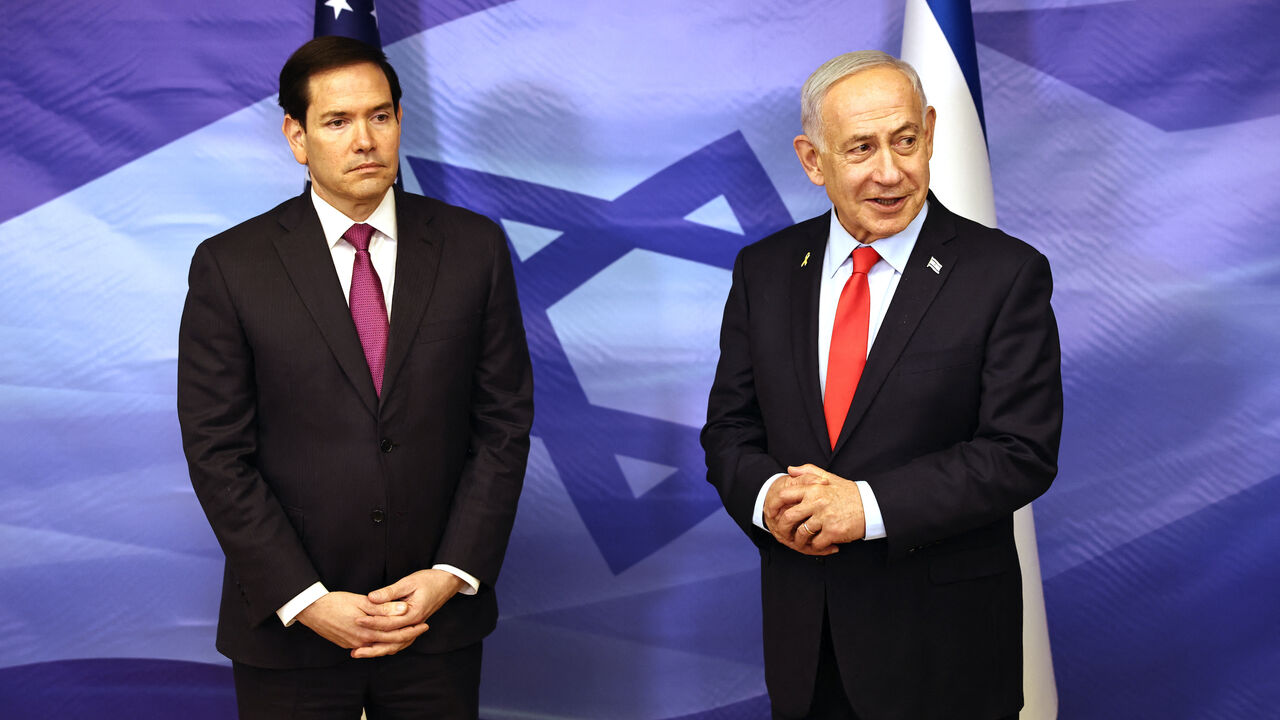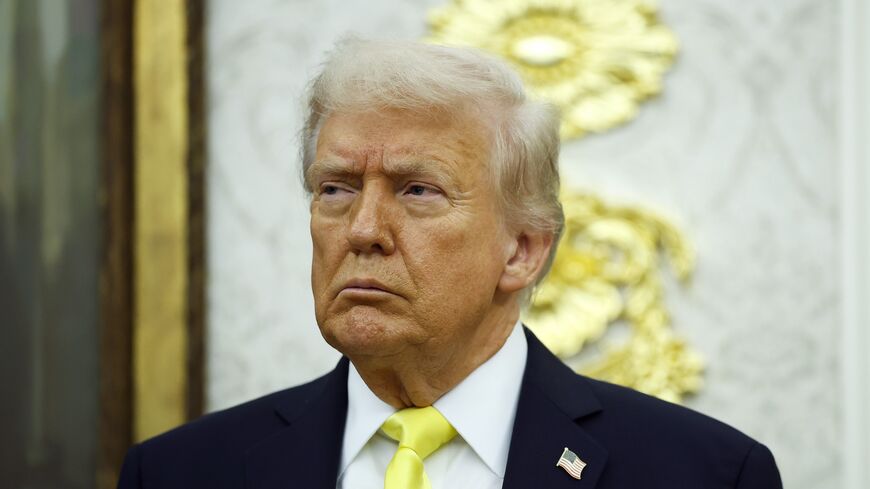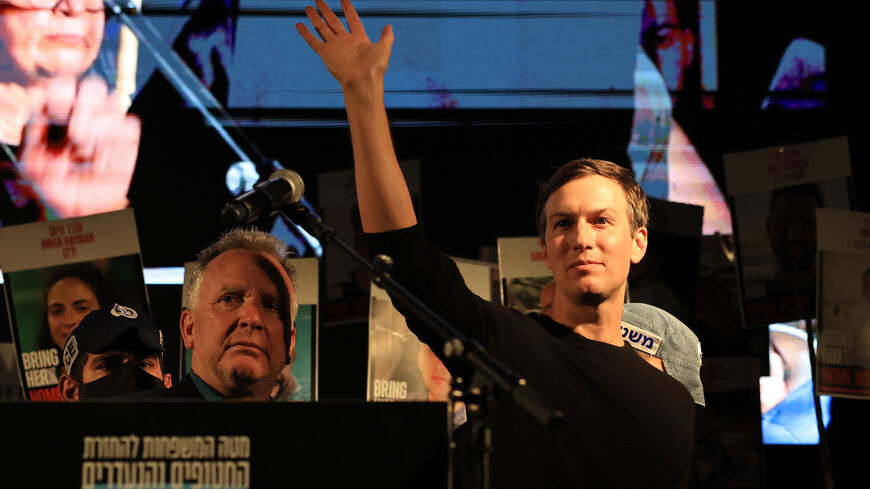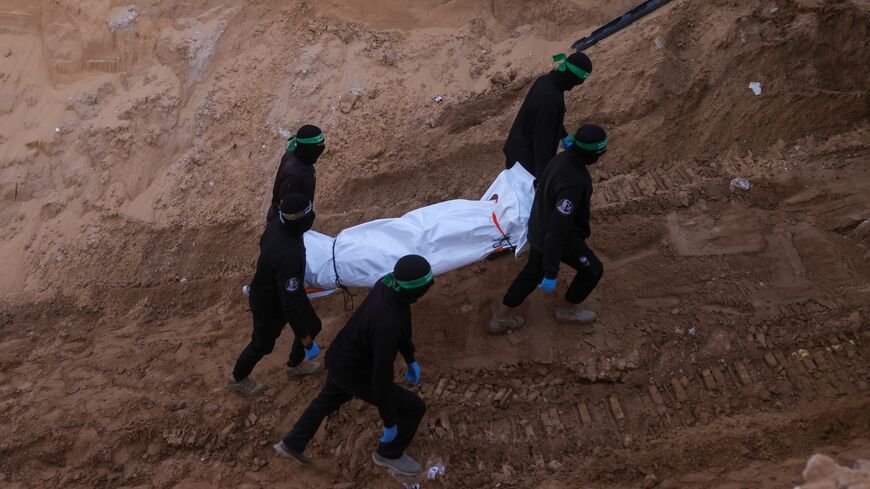Rubio meets Netanyahu in push to preserve Gaza ceasefire
Secretary of State Marco Rubio is the latest US official dispatched to Israel to maintain the ceasefire’s momentum.

WASHINGTON — Secretary of State Marco Rubio met with Israeli Prime Minister Benjamin Netanyahu Thursday, reinforcing the Trump administration’s pressure on Israel for a continued ceasefire in the Gaza Strip.
“I’m here now, today, because this is a priority,” Rubio said after meeting with Netanyahu at his office in Jerusalem. “There's more work to be done and bigger achievements that lie ahead.”
Rubio is the latest in a rotation of senior Trump administration officials to visit Israel, arriving hours after Vice President JD Vance concluded his two-day visit to the country. President Donald Trump’s son-in-law and adviser Jared Kushner and his Middle East envoy, Steve Witkoff, traveled to Israel on Monday, a day after a spurt of violence in Gaza threatened to collapse the fragile ceasefire they helped broker.
"This is a circle of trust and partnership," Netanyahu said alongside Rubio Thursday. “We still have security challenges, but I think that we can work together.”
Israeli media have dubbed this week’s nonstop presence of top US officials in Israel as “Bibi-sitting,” a play on the prime minister’s nickname, “Bibi.” Netanyahu himself coined the term in a 2015 campaign video that shows him knocking on the door of a couple’s home, offering to “Bibi-sit” their children.
In response to a reporter’s question Wednesday, Vance denied that the United States was imposing terms on an ally. Vance said he and other US officials were there instead to keep the ceasefire on track but not “in the sense of, you know, you monitor a toddler.”
Israel and Hamas agreed this month to an initial ceasefire in their two-year war, which saw the militants free the 20 living hostages in their custody and pledge to return the remains of 28 others. In exchange, Israel released nearly 2,000 Palestinian prisoners, pulled its troops back within Gaza and permitted a greater flow of humanitarian aid into the war-torn enclave.
Hamas has only transferred 15 of 28 deceased hostages to Israel, claiming that the widespread devastation caused by the Israeli bombing campaign has made recovering the remains difficult. A source familiar with the recovery efforts said the militants who dragged the bodies of dead soldiers into Gaza during their Oct. 7, 2023, massacre are believed to have abandoned them in transit, making their recovery less likely.
US officials are privately worried Netanyahu could use Hamas’ failure to return the bodies required by the ceasefire as a pretext for resuming the war, which killed an estimated 68,000 Palestinians and displaced a majority of the population in Gaza. The deaths of two Israeli soldiers Sunday in the southern Gaza city of Rafah also prompted calls for a return to war from hard-liners, including National Security Minister Itamar Ben-Gvir and Finance Minister Bezalel Smotrich.
Rubio’s visit comes a day after the Israeli parliament, the Knesset, gave preliminary approval to a bill that would impose Israeli sovereignty over the West Bank. Before departing for Israel, Rubio told reporters the Knesset move was “potentially threatening to the peace deal” in Gaza.
Vance also slammed the vote as “an insult,” stressing the Trump administration opposes annexation of the West Bank, which is territory the Palestinians envision as part of their future independent state.




